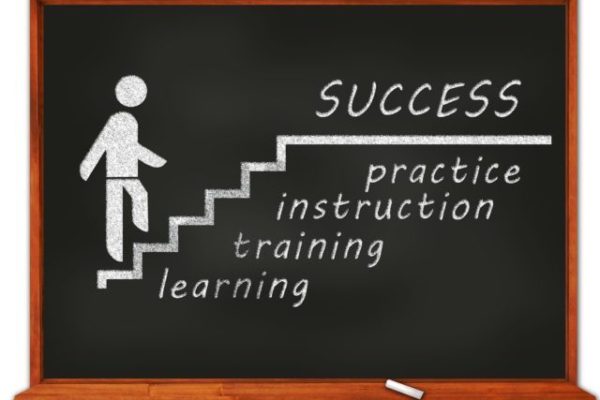You may recall that I made the point in two previous posts that knowing your school’s schedule of grading periods is important, since it allows you to keep better track of where you stand in each of your classes, and how much time you will have to make improvements to your grades before they close. As important as knowing your grading periods is at the beginning of the year, so you don’t dig yourself too deep a hole to get out of, it is even more important as the end of the year approaches, so you can take the best possible advantage of every remaining opportunity you have to end the year as well as you possibly can. Most of you have already started the last grading period of your school year, and those of you who haven’t will be doing so soon. Since there are countless different school schedules, I will not write about each of the possibilities. Instead, I will give you general guidelines about how to look back at the grading periods you’ve already completed, so you can figure out what you need to do to end not just your final grading period, but the year as a whole, on the best possible note.
Hopefully, you made yourself aware of when each grading period closes when I suggested you do so in my previous posts, but if you haven’t, or if you need a reminder, now’s the time to make sure you have this information. Check your school’s website and/or grading portal, and/or ask your teachers, and remember that what you need to know is when grades close, not when you will receive your report card or be able to look up your grades online! Teachers need time to grade your work and post your grades, so grades usually close a few days to a week before you will receive them. Even if you think you know when grades close, it is worth checking again as your start your final grading period, since end of year activities such as exams and graduation can affect the schedule and make the final grading period different than the previous ones.
Though you should know by now how many grading periods your school has, make sure to remind yourself how your grades will be averaged and whether exams will count as a part of your final grading period or be averaged in separately. If you do have final exams, another important consideration is whether they will only cover current information, or whether they are cumulative. If information that was taught in previous grading periods will be included on the final exam, make sure to find out just how much information will be covered and how much review will be provided. It may seem to be too soon to think about these things, but thinking and planning ahead will help you feel more confident that you will be able to prepare for your exams when the time comes. This will be particularly important in the classes you have found most challenging throughout the year, but in all your classes, you will want to do your best not to let your year’s average be pulled down too much by one low grade.
As with previous new grading periods, take the time at the beginning of the final one to think about what you did well and what you can do better. If you have been doing this since I first suggested it, you may realize by now that certain improvements have been harder to make than others, as well as that certain improvements were harder to sustain than you expected them to be. If you are still struggling to get the grades you were hoping for, look at each of them more closely and ask yourself what could have caused this. Be sure to recognize that there may be more reasons for it than there were earlier in the year, such as increased difficulty of content and/or expectations on assignments or projects. Try to figure out if you did poorly because you need to do more to improve your study skills, you need more help to deal with increased expectations, or a combination of the two. No matter how late in the year it is, it is never too late to continue to make improvements to your study skills or get the help you need. This may mean that you need to find more time to devote to your studies, right at the time of year when it is most tempting to want to do less, but in order to make your final grade in each course the best it can possibly be, very little bit counts!
Whether you need to build on grades you’re happy with, improve grades you wish were better, or a combination of both, it is important to remember that new grading periods provide a fresh start, even the final one, and that you should take the best possible advantage of it that you can. Approach each class period ready to give your very best effort, no matter what is taking place, and continue to do so, no matter how much or how little time remains in your school year. Continue to make whatever improvements you can make, even if it is too late to see much of a difference in this year’s grades. Even small improvements in this year’s grades will give you something to build on for next year, so as I have said many times before, don’t give up! Since improving your study skills is a journey, keep in mind that you are playing the long game. If you weren’t able to change everything you wanted to this school year, that’s okay – and not just because it was the year like no other. Just as with what you did well this year, so too with what you found more challenging – the most important thing to remember is that you want to build on what you’ve done, so you can make it better, not only through what remains of this school year, but also in the (hopefully, much better!) year to come.

